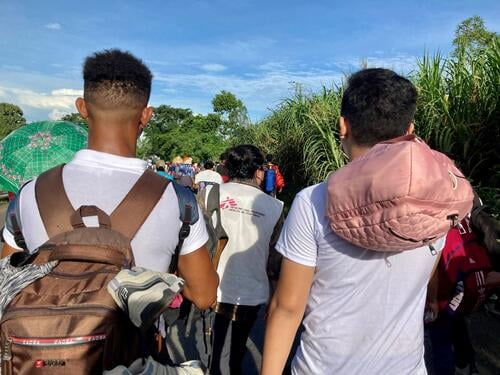Improving social lives of aging Ghanaian migrants in Finland

• Ghanaian migrants in Finland are young people
Today, I bring to readers an issue concerning the social lives of Ghanaian migrants in Finland. This is about the social lives of Ghanaian migrants who are over 50 years of age, even if people do not discuss it openly.
The Ghanaian migrant population in Finland has increased quite significantly from the 1990s when there were less than 400 of them. Today, there are around 2,000 people with Ghanaian background, according to population estimates.

Age and social life
Actually, the social lives of migrants, especially older migrants, is gaining much attention on efforts to improve the wellbeing of people.
Social networks of family, friends, migrants associations, etc., have become important points for providing information and education about healthy lifestyles and improving wellbeing.
As I wrote some time ago, these networks create an important social capital and become an outlet for sharing or providing information about health and wellbeing.
Thus, public agencies, migrant associations and other non-governmental organisations (NGOs) in Finland have been concerned with advocating the good health and wellbeing of people, especially migrants.
Many migrant groups or associations are using social media platforms and virtual meetings to educate their members and others about their social lives and keeping healthy through positive lifestyles.
Not just about retirement
I have written previously about the dilemma of many aging Ghanaian migrants in Finland who are preoccupied with where to eventually settle once they go on pension.
Actually, many of the Ghanaian migrants in Finland are young people who are students or workers in the various sectors. Such people may not be bothered about their old age and maintaining friendly relations and networks.
That is, the concern is not just about the social lives and wellbeing of the older Ghanaian migrants within the Ghanaian migrant community who have retired or are nearing retirement and place to eventually live in that period.
Migrant associations and wellbeing
As I have mentioned already, migrant associations are increasingly focusing on the social lives and how to help to improve the wellbeing of people such as migrants.
Generally, such associations seek to serve as a platform to combat loneliness and act as a way to protect the mental health and physical wellbeing of older migrants—the senior citizens, if you choose to call them so.
In trying to seek improvements in the social lives of older migrants and their wellbeing, the associations are again aiming to enhance the integration and inclusion of such migrants in the Finnish society.
Generally, migrant associations formally create awareness among their members and other migrants, usually in collaboration with some Finnish institutions, and are thus an important tool for many migrants to be positively active and to get their interest and claims heard.
As I wrote previously, the role of migrant associations acting as bridge-builders for the integration and inclusion of migrants through participation in the decision making process and by acting as a representative voice is highly appreciated in Finland.
Beyond the old people’s homes
As I once pointed out, in the opinion of most of Ghanaian migrants in Finland, the Finnish system whereby old people are kept and cared for in a special home for the elderly is very good.
Yet, there seems to be apprehensions among some people about how it would feel like in such a place without family relations by one’s side.
African and Ghanaian migrants are originally from holistic societies in Africa where family members reside together and the old are usually surrounded by the young ones—children, grandchildren, nephews and nieces, etc.
Today, the associations are concerned with how to ensure that older people get the social relations that they need particularly in their old age with the needed friendship and care.
That would be beyond the idea of settling in the old people’s home, for they know that such people need friendship and help,even when they are not in the old people’s home, and especially later if they decide to settle in the old people’s homes.
[The writer is a Ghanaian lecturer in Finland]
Email: perpetualcrentsil@yahoo.com
By Perpetual Crentsil













